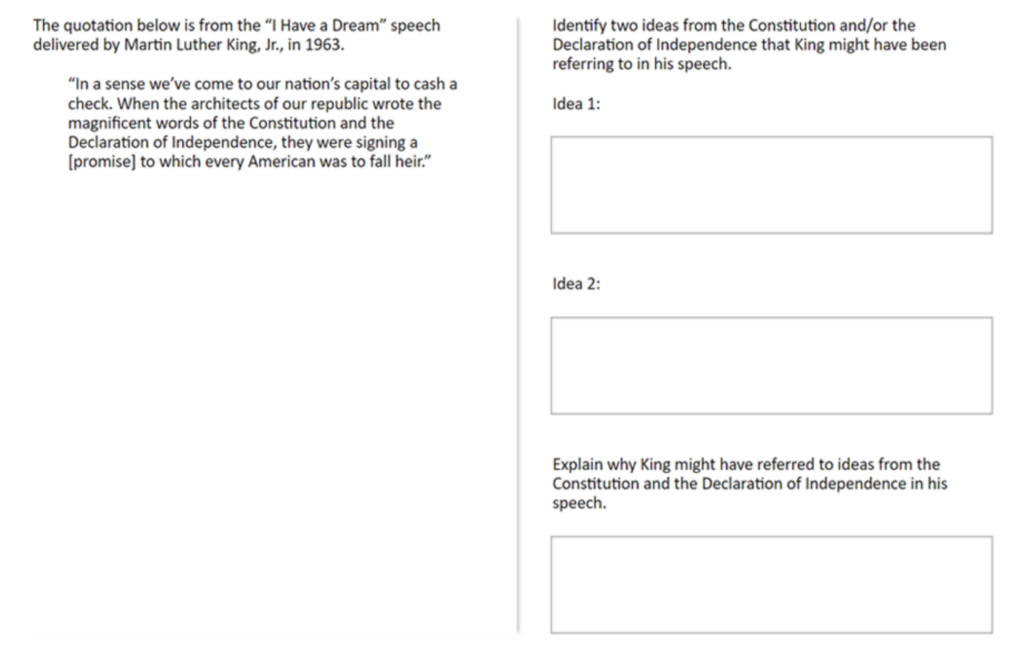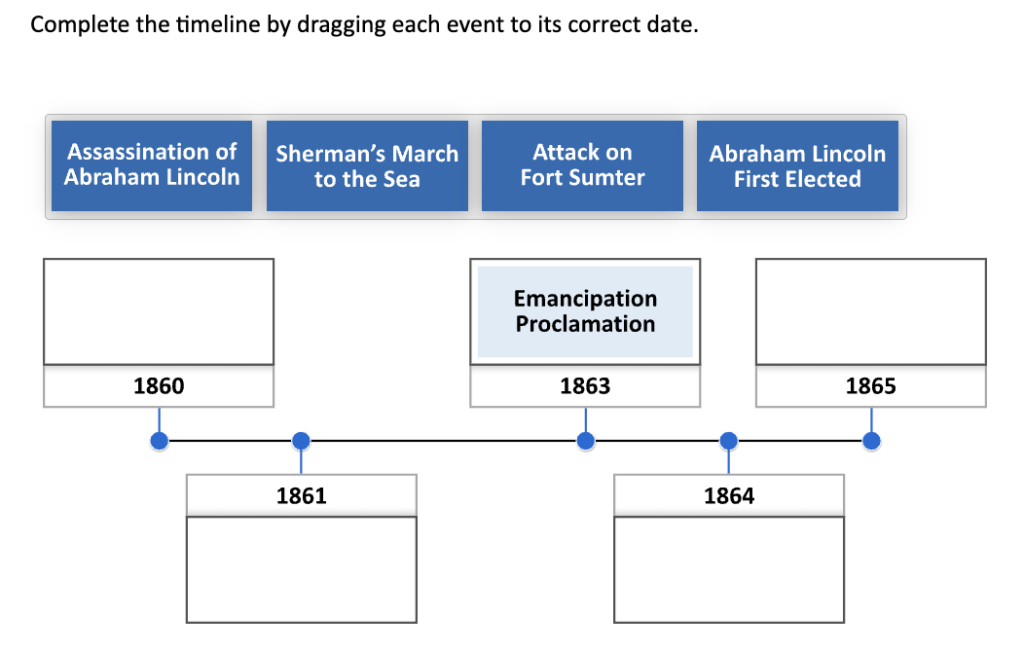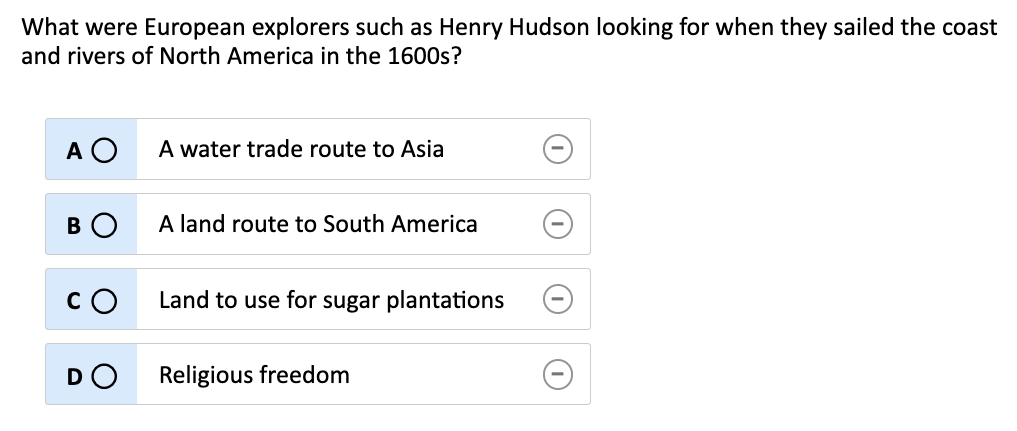U.S. 8th graders struggle with U.S. history
Eighth graders across the country are struggling with U.S. history knowledge, as newly released 2022 assessment scores are back at the levels they were in the 1990s.
Student performance on the National Assessment of Educational Progress (NAEP) U.S. history test dropped five points compared to 2018 scores, adding to the consecutive decline on the test since 2014. (For the U.S. history exam, only a national snapshot is available, as test results are not broken down by state.)
Trend in 8th Grade NAEP U.S. History Average Scores
The U.S. history assessment measures students’ knowledge of American history, as well as “how well they can evaluate historical evidence and understand change and continuity over time,” according to NAEP.
Students were asked a mix of multiple choice questions and questions that required a short-answer/written response, and their results placed them at or above three NAEP achievement levels — “basic,” “proficient,” and “advanced.” (This is not grade-level proficiency like what state assessments show, but rather whether students demonstrate solid academic performance and competency on the subject matter tested. So, “basic” would mean the student demonstrates partial mastery of the requisite skills and knowledge in the subject tested.)
The percentage of 8th graders scoring below the “basic” benchmark was a staggering 40 percent in 2022, up from 34 percent in 2018 and 29 percent in 2014.
Eighth graders’ civics knowledge also declined, dropping two points from 2018 results and marking the first-ever decline in the test’s 25-year history. These history and civic results add to declining test scores in other academic areas including math and reading, which have also reached new lows.
Below are a handful of the U.S. history results based on released questions by NAEP.
- Only 6 percent of 8th graders were able to identify two ideas from the Constitution and/or the Declaration of Independence that Martin Luther King, Jr. might have been referring to in his “I Have a Dream” speech and then explain why King might have referred to those ideas in his speech. (NAEP explains here what responses would have earned a student complete credit.)
- Less than half of 8th graders (45 percent) identified the correct right guaranteed by the Bill of Rights from the following options: right to public education, right to health care, right to trial by a jury (the correct answer), and right to vote.
- Nearly 40 percent of 8th graders matched either one or zero of the events on the timeline below with their correct date. Only 19 percent identified all four events with their correct date.
- When asked about sea expeditions in North America in the 1600s, less than half of 8th graders (47 percent) correctly identified what European explorers such as Henry Hudson were looking for — a water trade route to Asia.
- Eighty-four percent of 8th graders could correctly identify the conditions of factory work in the mid-to-late 1800s.
U.S. Secretary of Education Miguel Cardona blamed the test score declines on “banning history books” and “censoring educators from teaching these important subjects,” noting that “we need to provide every student with rich opportunities to learn about America’s history and understand the U.S. Constitution and how our system of government works.”
Those opportunities, though, are not being threatened by the reasons Secretary Cardona claims, but rather by efforts to prepare students for political activism versus ensuring they have basic factual knowledge to be informed citizens.
In Minnesota, such efforts to replace factual, academic knowledge are currently underway, but it’s not due to “book bans” or “censorship” — it’s due to Gov. Tim Walz’s Department of Education focusing the state’s K-12 social studies standards on divisive topics and radical political activism. According to national social studies expert Wilfred McClay, Minnesota’s draft social studies standards are now among the worst social studies standards in the nation.
These standards are still in the rulemaking process and will go before a governor-appointed administrative law judge for approval. There will be another public comment period before the standards are formally adopted, and American Experiment will keep you up-to-date on that feedback opportunity.



